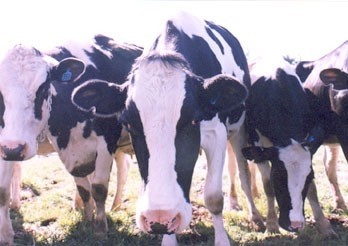Japanese experts say food from clones safe
In April last year, the Food Safety Commission was asked to deliberate on the matter by Japan’s ministry of health.
“Foods derived from cloned cows and swine, and from the offspring of clones, are as safe as food from conventionally bred animals,” said the working group in its report published today.
The Japanese food safety watchdog will make a recommendation to the Japanese government in the coming months following its assessment of the report on whether it should lift the ban on the use of cloned animals for food.
Japan was one of the first countries to produce cloned animals, which are exact copies of an animal. For research purposes it has been breeding cloned cattle since 1998.
US and EU perspectives
Cloned animals and their offspring received a positive response on their safety from the US Food and Drug Administration (FDA) in January 2008, with the regulator approving the sale of food from such animals; but the US Department of Agriculture (USDA) was more cautious saying food from cloned animals should not be sold until further consultations took place.
The European Food Safety Authority (EFSA), in July, concluded that meat and dairy products from cloned pigs and cattle are probably safe for human consumption.
Professor John Collins, chair of EFSA's Biohaz Panel, one of ten scientific panels that make up the regulator's Scientific Committee, said at the time that based on the knowledge available there was no evidence to indicate that cloned meat and dairy goods were any different from conventional products.
Meat sector
Philip Hambling, Food Policy Manager with the British Meat Processing Association (BMPA), said that while the meat sector was satisfied that the risks to human health from cloned animal products were low or minimal, it was too early to determine exactly what the benefits of animal cloning technology for the meat industry were.
He added that as the sector was consumer driven and with the general public so far displaying strong resistance to such products, more debate around the ethical and social implications of cloning is required.
Consumer resistance
Consumer resistance is bound to pose a problem, given the level of high concern surrounding attempts to introduce genetically-modified foods in Europe.
A survey by the UK Food Standards Agency (FSA) showed that consumers there struggled to find any tangible consumer benefits from cloned animals being introduced into the food chain.
The FSA said the respondents expressed concern that the main motive would be "financial, for biotech companies, livestock breeders, farmers or food retailers."


















